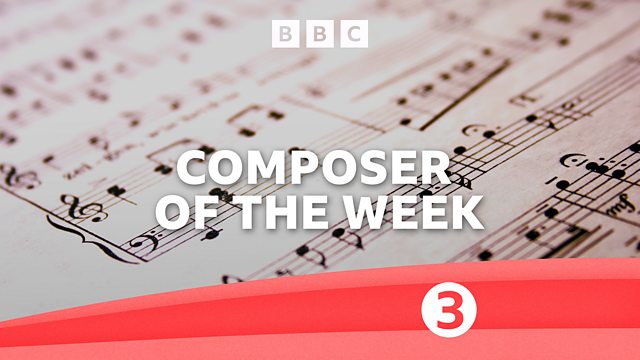
Life in Vienna
Donald Macleod looks at Mozart's characterisation of the gentry in his operas Don Giovanni, Die Entführung aus dem Serail and Le nozze di Figaro.
Donald Macleod looks at Mozart's characterisation of the gentry in his operas Don Giovanni, Die Entführung aus dem Serail and Le nozze di Figaro.
Born in 1756, the theatre was a life-long passion for Mozart. Starting at the tender age of just 11, in the space of 22 years he produced an astonishing 24 theatrical works. His destiny was to follow in his father’s footsteps, as a court musician. Instead, by 1781, after a disagreement over his frequent absences from court, Mozart parted ways with his employer, the Elector of Cologne. He left Salzburg and servitude behind, to set himself up in Vienna, a thriving centre for music. The following year he triumphed with his comic singspiel, Die Entführung aus dem Serail. The succession of works that followed include many of the mainstays of operatic repertory, among them The Magic Flute, which was completed in the year of his death, at the age of 35 in 1791.
This week Donald Macleod finds connecting points between the characters Mozart created for the stage and the composer's own experiences in life. He examines how Mozart struggled to be a dutiful son, and how he tackles honour and duty in Idomeneo, Lucio Silla and Mitridate. The ideas of enlightenment that influenced Mozart's own views find expression in the balance of power he depicts between servants and the ruling classes in The Marriage of Figaro. The composer’s thorny path to marriage with Constanze also finds him examining the complexities of love in Die Enführung aus dem Serail and Così fan tutte. The series ends with Mozart's masterly representation of temptation and evil, as characterised by the ultimate bad boy Don Giovanni and the scheming and manipulative Queen of the Night.
In today's episode, Don Giovanni shamelessly celebrates a virtueless life, while Konstanze sticks to her moral principles. Life isn't running smoothly for the Count and Countess Almaviva as Susanna and Figaro challenge the status quo of their employers.
Don Giovanni (Act 1)
Champagne Aria
Simon Keenlyside, baritone, Don Giovanni
Chamber Orchestra of Europe
Claudio Abbado, conductor
Die Entführung aus dem Serail (Act 2)
Martern aller Arten
Christine Shäfer, soprano, Konstanze
Les Arts Florissants
William Christie, director
Le nozze di Figaro (Act 2)
Esci ormai, garzon malnato …Signore! Cos’è quell’stupore?
Anna Moffo, soprano, Susanna
Eberhard Wächter, baritone, Conte
Elisabeth Schwarzkopf, soprano, Contessa
Giuseppe Taddei, baritone, Figaro
Piero Cappuccili, bass, Antonio
Philharmonia Orchestra
Carlo Maria Giulini, conductor
Le nozze di Figaro (Act 3)
Hai già vinto la causa….. Vedró, mentr’io sospiro
Eberhard Wachter, baritone, Count Almaviva
Philharmonia Orchestra
Carlo Maria Giulini, conductor
Don Giovanni (Finale to Act 1)
Riposate, vezzose ragazze
Ildebrando d’Arcangelo, bass, Masetto
Patrizia Pace, soprano, Zerlina
Simon Keenlyside, baritone, Don Giovanni
Soile Isokoski, soprano, Donna Elvira
Uwe Heilmann, tenor, Don Ottavio
Carmela Remigio, soprano, Donna Anna
Bryn Terfel, bass-baritone, Leporello
Chamber Orchestra of Europe
Claudio Abbado, director
La clemenza di Tito (Act 1)
Parto, parto
Bernarda Fink, mezzo-soprano, Sesto
Freiburg Baroque Orchestra
René Jacobs, conductor
Last on
Music Played
-
![]()
Wolfgang Amadeus Mozart
Don Giovanni, K 527 (Act 1, Champagne Aria)
Singer: Simon Keenlyside. Orchestra: Chamber Orchestra of Europe. Conductor: Claudio Abbado.- DEUTSCHE GRAMMOPHON : 457-601-2.
- DEUTSCHE GRAMMOPHON.
- 1.
-
![]()
Wolfgang Amadeus Mozart
Die Entfuhrung aus dem Serail, K 384 (Act 2, Martern aller Arten)
Singer: Christine Schäfer. Ensemble: Les Arts Florissants. Director: William Christie.- ERATO : 3984-25490 2.
- ERATO.
- 22.
-
![]()
Wolfgang Amadeus Mozart
Le nozze di Figaro, K 492 (Act 2, Esci ormai, garzon malnato)
Orchestra: Philharmonia Orchestra. Conductor: Carlo Maria Giulini. Singer: Elisabeth Schwarzkopf. Singer: Anna Moffo. Singer: Eberhard Waechter. Singer: Giuseppe Taddei. Singer: Piero Cappuccilli.- EMI : CMS 7-63266 2.
- EMI.
- 31.
-
![]()
Wolfgang Amadeus Mozart
Le nozze di Figaro, K 492 (Act 3, Hai già vinto la causa...Vedró, mentr'io sos)
Orchestra: Philharmonia Orchestra. Conductor: Carlo Maria Giulini. Singer: Eberhard Waechter.- EMI : CMS 7-63266 2.
- EMI.
- 6.
-
![]()
Wolfgang Amadeus Mozart
Don Giovanni, K 527 (Act 1, Finale)
Singer: Ildebrando d’Arcangelo. Singer: Patrizia Pace. Singer: Simon Keenlyside. Singer: Soile Isokoski. Singer: Uwe Heilmann. Singer: Carmela Remigio. Singer: Bryn Terfel. Orchestra: Chamber Orchestra of Europe. Conductor: Claudio Abbado.- DEUTSCHE GRAMMOPHON : 457-601-2.
- DEUTSCHE GRAMMOPHON.
- 9.
-
![]()
Wolfgang Amadeus Mozart
La clemenza di tito, K 621 (Act 1, Parto, parto)
Orchestra: Freiburg Baroque Orchestra. Conductor: René Jacobs. Singer: Bernarda Fink.- HARMONIA MUNDI : HMC-901923/24.
- HARMONIA MUNDI.
- 19.
Broadcasts
- Tue 16 Feb 2021 12:00����ý Radio 3
- Tue 10 Jan 2023 12:00����ý Radio 3
Beethoven Unleashed – the box set
What was really wrong with Beethoven?
Composers A to Z
Who knew? Five eye-opening stories from Composer of the Week
Five reasons why we love Parry's Jerusalem
What is the strange power of Jerusalem which makes strong men weep?
A man out of time – why Parry's music and ideas were at odds with his image...
The composer of Jerusalem was very far from the conservative figure his image suggests.
Composer Help Page
Find resources and contacts for composers from within the classical music industry.





